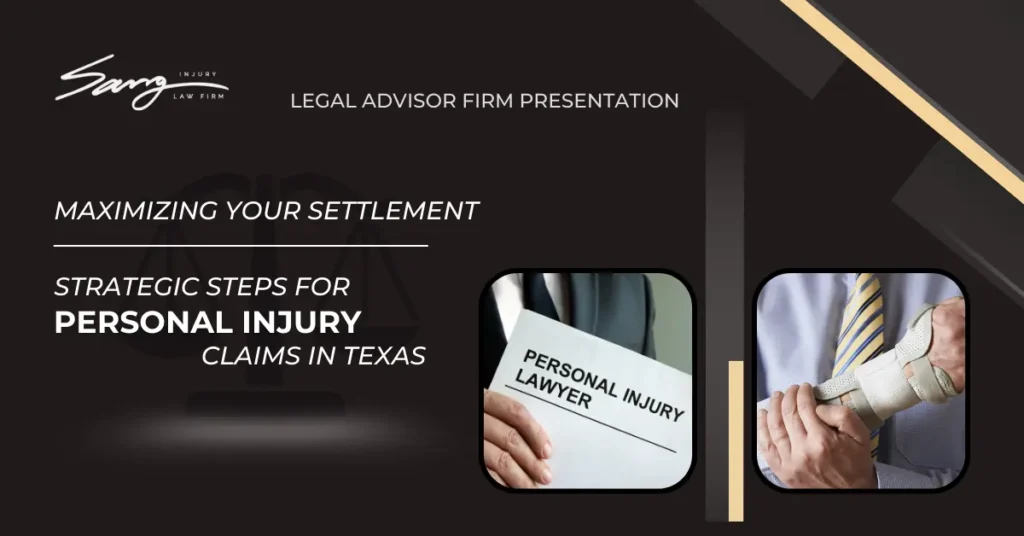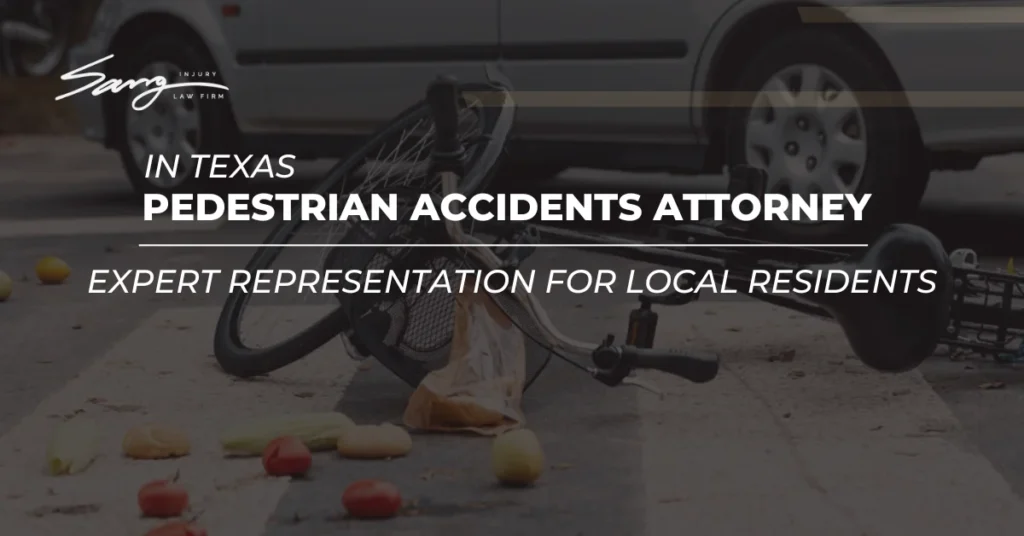Understanding Personal Injury Law
In Texas, personal injury law serves as the legal framework that provides relief to individuals who have suffered harm due to the negligent, reckless, or intentional actions of another party. The essence of a personal injury case lies in proving that the harm suffered was a direct result of another’s failure to exercise reasonable care. Personal injury claims encompass a broad spectrum of accidents, from automobile collisions and workplace injuries to slip and fall incidents and medical malpractice.
Importance of Knowing Your Rights
It is crucial for Texans to understand their legal rights following an injury. Knowing your rights empowers you to navigate the legal complexities that may arise and ensures that you are adequately compensated for your injuries. This knowledge not only helps in securing the necessary medical and financial support but also protects you from being manipulated or unfairly treated by insurance companies or opposing legal entities.
Overview of Common Types of Personal Injury Cases
In Texas, common personal injury cases include traffic accidents, which lead in frequency and severity, followed by workplace injuries, particularly in high-risk industries like construction and manufacturing. Other prevalent cases involve premises liability, such as slip and fall accidents, and product liability where defective or unsafe products cause harm. Each type of injury might involve different legal principles and strategies for a successful claim.
The Basics of Personal Injury Claims
Defining Personal Injury in Texas Law
Under Texas law, a personal injury claim is defined as a legal dispute that arises when one person suffers harm from an accident or injury, and someone else might be legally responsible for that harm. The personal injury system aims to make the injured person “whole” again through financial compensation—or “damages”—which cover both economic losses like hospital bills and non-economic losses such as pain and suffering.
The Role of Negligence and Fault
Negligence is the cornerstone of most personal injury claims in Texas. To establish negligence, the injured party must prove that the other party had a duty to act with reasonable care, breached that duty, and caused the injury directly or proximately. Texas follows the “modified comparative fault” rule, where damages are reduced by the percentage of fault assigned to the injured party if they are found to be partially responsible for the incident.
Types of Damages Available
In Texas, damages in personal injury claims can be classified into two main categories: compensatory and punitive. Compensatory damages are intended to compensate the injured plaintiff for actual losses, which can be economic (such as medical bills and lost wages) or non-economic (such as pain and suffering and loss of enjoyment of life). Punitive damages, on the other hand, are awarded in cases of gross negligence or malice to punish the wrongdoer and deter similar actions in the future.
First Steps After an Injury
Seeking Immediate Medical Attention
The first and most critical step after sustaining an injury is to seek immediate medical attention, regardless of the injury’s apparent severity. Not only is this vital for your health, but medical records also serve as crucial evidence in your personal injury claim. These records link the accident to the injuries claimed, a link often contested in personal injury cases.
Documenting the Incident and Injuries
Document every detail related to the incident as soon as possible. This includes taking photos of the accident scene, your injuries, and any property damage. Also, gather names and contact information of witnesses and a copy of the police report, if applicable. This documentation will provide substantive support to your claim, demonstrating the extent of your injuries and the circumstances surrounding the incident.
Reporting the Injury to Relevant Parties
Report the injury to relevant parties without delay. This could include your employer if the injury occurred at work, or an insurance company in the case of traffic accidents or premises liability cases. Timely reporting is crucial as it not only initiates the formal process of your claim but also helps in preserving your legal rights under Texas law.
Hiring the Right Personal Injury Attorney
Why You Need an Attorney
Navigating a personal injury claim in Texas without legal representation can be daunting and, often, less effective. An experienced personal injury attorney brings a comprehensive understanding of Texas laws and procedural rules, significantly increasing your chances of receiving a fair settlement. Lawyers are skilled in negotiating with insurance companies, who often employ tactics to minimize payouts. An attorney can advocate on your behalf, ensuring that your rights are protected and that you are not taken advantage of during vulnerable times.
How to Choose the Right Lawyer
Choosing the right personal injury attorney is a pivotal decision that can influence the outcome of your case. Start by looking for lawyers who specialize in personal injury law and have a track record of handling cases similar to yours. Consider their reputation in the legal community, reviews from past clients, and their success rate in securing favorable settlements or verdicts. Schedule consultations with potential attorneys to assess their communication skills, understanding of your specific needs, and their proposed strategy for your case. It’s crucial that you feel comfortable with their approach and confident in their ability to represent you effectively.
What to Expect from Your Attorney
From the initial consultation through to the resolution of your claim, you should expect your attorney to be a dedicated advocate for your interests. They will conduct a thorough investigation of the incident, communicate with insurance companies on your behalf, and guide you through the legal processes involved. Your attorney should keep you informed about the progress of your case, explain complex legal terms in understandable language, and be accessible to address your concerns. Their primary goal is to alleviate the burden on you so you can focus on recovery, while they focus on securing the maximum compensation you deserve.
Investigating Your Personal Injury Claim
Gathering Evidence
The success of your personal injury claim largely depends on the strength of your evidence. Your attorney will help in gathering all necessary documentation, which includes medical records, eyewitness accounts, video surveillance of the incident, and official reports from law enforcement or accident reports. Additionally, they will collect any physical evidence from the scene and engage in legal discovery processes such as depositions and interrogatories to build a robust case on your behalf.
Importance of Accident Reconstruction
In complex cases where the cause of the accident is not clear or is disputed by the involved parties, accident reconstruction experts may be employed. These experts use scientific methods to recreate the accident scenario to determine fault and liability. This can be particularly useful in multi-vehicle accidents, industrial accidents, or when there are no witnesses. Accident reconstruction can provide compelling evidence in court, making it a critical element in substantiating your claim.
Working with Medical Experts
Medical experts play a crucial role in personal injury claims, as they provide authoritative insights into your injuries, the required treatment, and the prognosis. These professionals can testify about the extent of your injuries and the expected impact on your life, which is vital for calculating adequate compensation. In some cases, they might also help in establishing a causal link between the accident and the injuries sustained, a key factor contested in many personal injury claims.
Understanding the Value of Your Claim
How Damages Are Calculated
Damages in personal injury cases are calculated based on the extent of your injuries, the impact on your lifestyle, and your financial losses. This includes both tangible losses, like medical expenses and lost wages, and intangible losses, such as pain and suffering and emotional distress. Your attorney will work to ensure that every aspect of your damages is quantified to reflect the true cost of your injuries.
Factors Influencing Compensation Amounts
Several factors can influence the compensation amounts in a personal injury claim, including the severity of the injury, the clarity of fault, the policy limits of the involved insurance policies, and the persistence and skill of your legal representation. Additionally, your own role in the incident (if any) and your life circumstances, such as your age and health prior to the accident, will also be considered.
Estimating Future Expenses
Part of maximizing your settlement involves accurately estimating future medical expenses, potential future income loss, and ongoing care costs. This often requires consultation with medical professionals, economists, and life care planners who can project the long-term impacts of your injuries. Accurate estimations ensure that the settlement covers all your future needs related to the injury, preventing unforeseen financial difficulties down the line.
and emotionally taxing. Pre-trial preparation often includes:
- Mock trials: To simulate the courtroom environment and help you prepare your testimony.
- Review of all documentation: Ensuring all evidence, from medical records to accident reports, is organized and accessible.
- Strategy sessions: Detailed discussions with your legal team to align on key arguments and trial tactics.
The Importance of Expert Witnesses
Expert witnesses can significantly influence the outcome of a personal injury trial. They provide specialized knowledge that helps the jury understand complex issues related to the case, such as medical injuries, economic loss, and future care needs. Experts might include:
- Medical professionals: To testify about your injuries, treatment, and prognosis.
- Accident reconstruction specialists: To provide insights into how and why the incident occurred.
- Economic experts: To outline the financial impact of your injuries, including lost earnings and future costs.
The testimony of these experts is crucial in establishing the extent of your damages and linking them directly to the defendant’s actions.
Special Considerations in Texas Personal Injury Claims
Comparative Fault Rules in Texas
Texas follows a “modified comparative fault” rule, which means that the amount of compensation you can receive is reduced by an amount equal to your percentage of fault in the accident. Importantly:
- 50% Bar Rule: If you are found to be 50% or more at fault, you will not receive any compensation.
- Impact on damages: If you are less than 50% at fault, your damages are reduced proportionally by your percentage of fault.
Understanding how your actions might influence your claim under these rules is crucial in strategizing for both settlement negotiations and trial.
Statute of Limitations
In Texas, personal injury claims are subject to a statute of limitations which generally limits the time within which an injured party can file a lawsuit to two years from the date of the injury. Key considerations include:
- Date of Discovery: In some cases, this period may begin from the date you discovered the injury, rather than the date the injury occurred.
- Exceptions: Certain scenarios, such as claims against government entities, may have different time limits.
It’s vital to consult with an attorney as soon as possible to ensure you don’t forfeit your right to claim due to a missed deadline.
Handling Claims Against Government Entities
Claims against government entities in Texas involve additional complexities and require adherence to specific procedures:
- Notice Requirements: Typically, you must give notice of the claim to the government entity within six months of the incident.
- Limited Liability: Government entities often enjoy sovereign immunity, which may limit your ability to sue or the amount of damages you can recover.
Navigating these hurdles effectively demands an experienced attorney who understands the nuances of litigating against government bodies.
Each of these sections highlights critical aspects of personal injury claims in Texas. Understanding these elements and working closely with a competent attorney can significantly influence the outcome of your claim, helping to ensure you receive the maximum possible compensation for your injuries.
Maximizing Your Settlement
Five Strategies to Increase Compensation
Maximizing your settlement in a personal injury claim involves a multifaceted approach that strategically enhances the value of your case. Effective strategies include:
- Comprehensive Documentation: Ensure every aspect of your claim is backed by robust documentation—medical records, expert testimonies, a diary of pain and suffering, and proof of income loss. This creates a concrete basis for demanding a higher settlement.
- Utilizing Expert Testimonies: Engage with medical experts, accident reconstruction analysts, and economic damage experts who can provide compelling evidence about the extent of your injuries and the impact on your life. This not only solidifies your claim but also emphasizes the necessity for adequate compensation.
- Emphasizing Non-Economic Damages: Clearly articulate the emotional and psychological impact of your injuries. Pain and suffering, loss of enjoyment of life, and mental anguish are significant components of your claim and should be highlighted during negotiations.
- Future Damages Projection: Work with medical and financial experts to project future medical needs and costs. Including future damages in your claim can substantially increase your settlement, as it encompasses ongoing rehabilitation, future surgeries, and potential loss of earnings.
- Skillful Negotiation: Leveraging strong negotiation tactics, guided by an experienced attorney, can make a substantial difference. Effective negotiators know when to counter low offers and how to use pauses and silences as tactical tools to compel better offers.
The Role of Pain and Suffering in Settlements
Pain and suffering constitute a critical component of the damages in a personal injury case, often yielding substantial increases in the overall settlement amount. This non-economic damage compensates the claimant for the physical discomfort and emotional distress resulting from the injury.
Quantifying pain and suffering can be complex because it’s highly subjective, but generally includes:
- Intensity and Duration of Pain: The more severe and long-lasting the pain, the higher the potential compensation.
- Psychological Impact: Includes anxiety, depression, trauma, and loss of sleep resulting from the accident.
- Impact on Daily Life: How the injuries affect your daily activities, relationships, and overall quality of life.
- Permanent Consequences: Long-term or permanent disabilities significantly increase compensation due to their profound impact on an individual’s lifestyle and ability to work.
Demonstrating these impacts through detailed personal journals, psychiatric evaluations, and testimony from family and friends can effectively communicate the extent of pain and suffering experienced.
Leveraging Mediation and Arbitration
Alternative dispute resolution (ADR) methods such as mediation and arbitration can be powerful tools in settling personal injury claims. These approaches often result in faster resolutions, reduced legal fees, and outcomes that are acceptable to both parties.
- Mediation: This is a facilitated negotiation, where a neutral third party (the mediator) helps both sides come to an agreement. It’s non-binding and allows both parties to control the outcome, promoting creative solutions that are not typically available in court.
- Arbitration: In contrast to mediation, arbitration involves a neutral party (the arbitrator) who listens to both sides and makes a binding decision. Although more formal, it is generally quicker and less costly than court proceedings.
Employing these methods can be particularly advantageous in complex cases where privacy and maintaining relationships are important, or when parties seek to avoid the uncertainties of a trial.
Common Mistakes to Avoid in Personal Injury Claims
Failing to Document Everything
One of the most significant pitfalls in personal injury claims is inadequate documentation. Comprehensive records are foundational to building a strong case. Essential documents include:
- Medical Records: From initial treatment following the injury to ongoing rehabilitation.
- Financial Records: Proof of lost wages and other financial impacts.
- Incident Reports: Official reports and any correspondence with involved parties.
- Personal Diary: A detailed account of daily pain levels, emotional states, and how the injuries affect personal and professional life.
Underestimating the Impact of Pre-existing Conditions
Failing to disclose or accurately represent pre-existing conditions can jeopardize your claim. Insurance companies often scrutinize medical histories to find reasons to reduce or deny claims. Accurately presenting pre-existing conditions with your attorney’s help ensures they are factored correctly into your settlement negotiations.
Settling Too Quickly
Many claimants make the mistake of accepting the first settlement offer without fully understanding the extent of their damages or consulting their lawyer. Early offers are almost always lower than what can be obtained with thorough negotiation and patience. It’s essential to allow time for a complete evaluation of all damages, including potential future impacts, before settling.
Avoiding these common errors and employing strategic approaches can significantly enhance the success and compensation of your personal injury claim in Texas.
Conclusion and Next Steps
Navigating a personal injury claim in Texas requires an understanding of complex legal nuances and strategic decision-making to maximize your settlement. Remember the importance of comprehensive documentation, the significant role of pain and suffering in calculating settlements, and the advantages of leveraging alternative dispute resolution methods like mediation and arbitration to effectively manage your claim.
When to Consult a Personal Injury Lawyer:
It is crucial to consult a personal injury lawyer immediately after an accident. An experienced attorney can help you understand your rights, and the scope of your claim, and ensure that no detail is overlooked—from the initial filing to the final settlement. An attorney’s guidance is invaluable in effectively navigating negotiations with insurance companies and potentially taking your case to trial if necessary.
Future Outlook on Personal Injury Claims in Texas:
As legal standards and technologies evolve, the landscape of personal injury law in Texas is expected to continue changing. Staying informed about legal trends and potential legislative changes is essential for anyone involved in a personal injury claim. Working with a proficient and knowledgeable legal team remains your best strategy for adapting to these changes and securing the compensation you deserve.
For expert guidance and representation that you can trust, consider reaching out to Sang Injury Law Firm. Explore their services and how they can assist you with your personal injury claim by visiting Sang Injury Law Firm. Don’t navigate this complex process alone—get the professional support you need to achieve a favorable outcome in your case.






